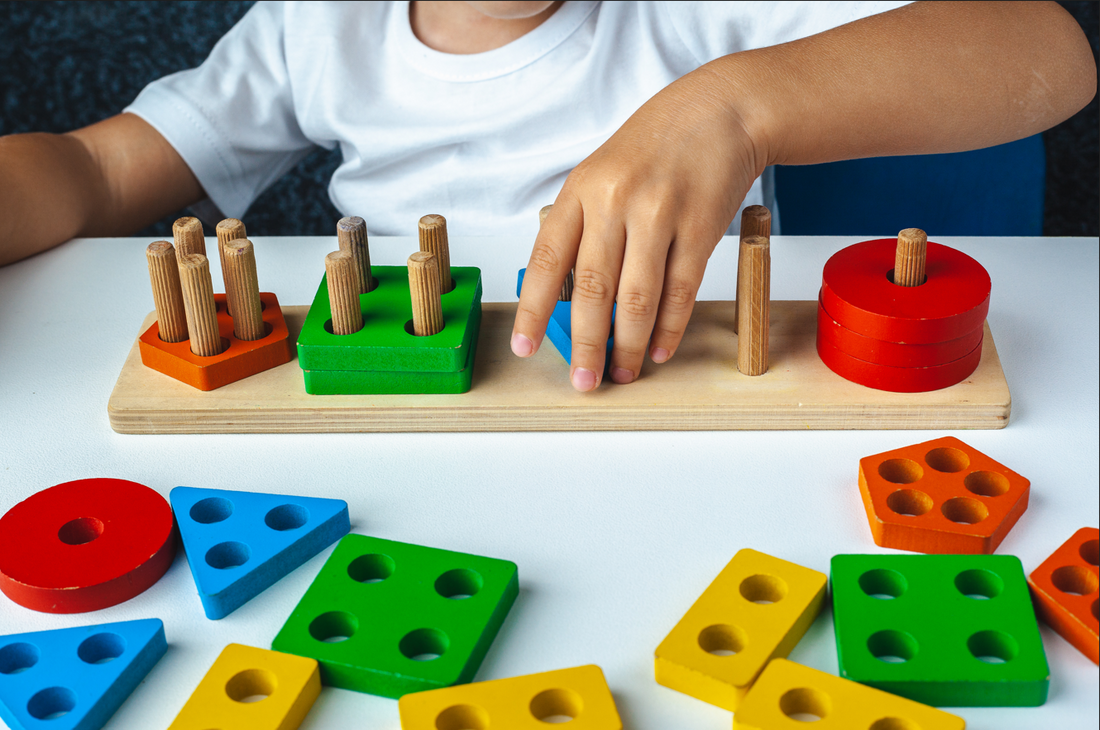
Educating Children: The Montessori Mehtod
Share
Montessori education is renowned for its unique approach to teaching and learning, emphasizing independence, self-directed learning, and hands-on exploration. Here are several key benefits of Montessori teaching:
1. Holistic Development
Montessori education aims to nurture the whole child—intellectually, emotionally, socially, and physically:
-
Self-Directed Learning: Children have the freedom to choose their activities from a range of options within a prepared environment. This fosters intrinsic motivation and a love for learning.
-
Individualized Pace: Each child progresses through the curriculum at their own pace, allowing for personalized learning experiences that cater to their unique strengths and interests.
-
Emphasis on Independence: Montessori classrooms are designed to promote independence. Children learn practical life skills, such as dressing themselves, preparing snacks, and cleaning up after activities, fostering confidence and self-reliance.
2. Hands-On Learning
Montessori education prioritizes hands-on, experiential learning:
-
Manipulative Materials: Specialized Montessori materials are designed to be self-correcting and facilitate learning through touch and movement. For example, the Montessori math materials help children grasp abstract concepts concretely.
-
Sensory Exploration: The curriculum includes activities that engage the senses, promoting sensory integration and cognitive development. Children learn through touching, smelling, tasting, hearing, and seeing.
3. Social and Emotional Development
Montessori classrooms are communities where children learn to interact respectfully and empathetically:
-
Mixed-Age Groupings: Children typically span three-year age groups in a Montessori classroom. This fosters a sense of community, encourages collaboration, and allows older children to mentor younger ones.
-
Conflict Resolution: Montessori education emphasizes peaceful conflict resolution. Children learn to communicate effectively, negotiate, and resolve conflicts independently with guidance from teachers.
4. Focus on Creativity and Critical Thinking
Montessori education cultivates creativity, curiosity, and critical thinking skills:
-
Freedom Within Limits: While children have freedom to choose activities, this freedom is within a structured environment that provides clear boundaries and guidelines. This balance encourages creative exploration within a framework of respect and responsibility.
-
Encouragement of Questioning: Teachers encourage children to ask questions, explore ideas, and make connections between different areas of knowledge. This approach nurtures a deep understanding of concepts and promotes lifelong curiosity.
5. Preparation for Life-Long Learning
Montessori education lays a strong foundation for future academic success and life skills:
-
Love for Learning: By nurturing a child's natural curiosity and intrinsic motivation, Montessori education instils a lifelong love for learning and a sense of responsibility for one's own education.
-
Adaptability and Resilience: The skills learned in a Montessori environment—such as self-regulation, problem-solving, and collaboration—prepare children to adapt to new situations and challenges throughout their lives.
Conclusion
Montessori education stands out for its focus on nurturing independent, confident, and curious learners. By providing a supportive environment that values individuality and hands-on exploration, Montessori teaching equips children with essential skills for both academic success and personal growth. It celebrates each child's unique potential while fostering a deep respect for others and the world around them—a foundation that extends far beyond the classroom.
